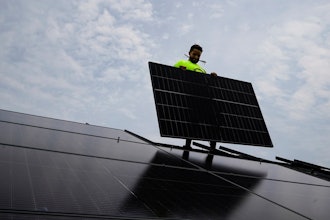ANNAPOLIS, Md. (AP) - Gov. Martin O'Malley is urging federal regulators to deny a proposal by AES Corp. to build a $400 million liquefied natural gas terminal at Sparrows Point in eastern Baltimore County.
''The state of Maryland is adamantly opposed to the construction of any liquefied natural gas facility at Sparrows Point,'' O'Malley wrote in a letter Wednesday to Magalie R. Salas, secretary of the Federal Energy Regulatory Commission. ''We have very serious concerns regarding the safety of the proposed project, as well as its impact to the state's environment and economy.''
O'Malley's administration sent a 90-page advisory report to FERC, including material prepared by the Department of Natural Resources and a Baltimore County task force, outlining concerns about the project.
Bryan Lee, a FERC spokesman, confirmed that the letter had been received. The commission is currently working on an environmental impact statement for the proposed plant. Lee could not give a timetable for when the commission would decide whether to approve the project.
Liquefied natural gas, or LNG, is gas that has been chilled to 260 degrees below zero, condensing it into a liquid that is more efficient for shipping.
Arlington, Va.-based AES Corp. has proposed building an LNG terminal and processing plant on 60 acres at the old shipyard near the Key Bridge. The company also hopes to build an 87-mile pipeline at a cost of between $200 million to $250 million that would transport LNG from the Sparrows Point plant through Harford County to southern Pennsylvania.
Under the proposal, heavy tankers would bring natural gas to the plant, where it would be processed and then piped to Pennsylvania.
Opponents have said they fear the plant would attract terrorists, deflate property values and could explode. The environmental impact of dredging the harbor to accommodate the tankers could be catastrophic, they said.






















